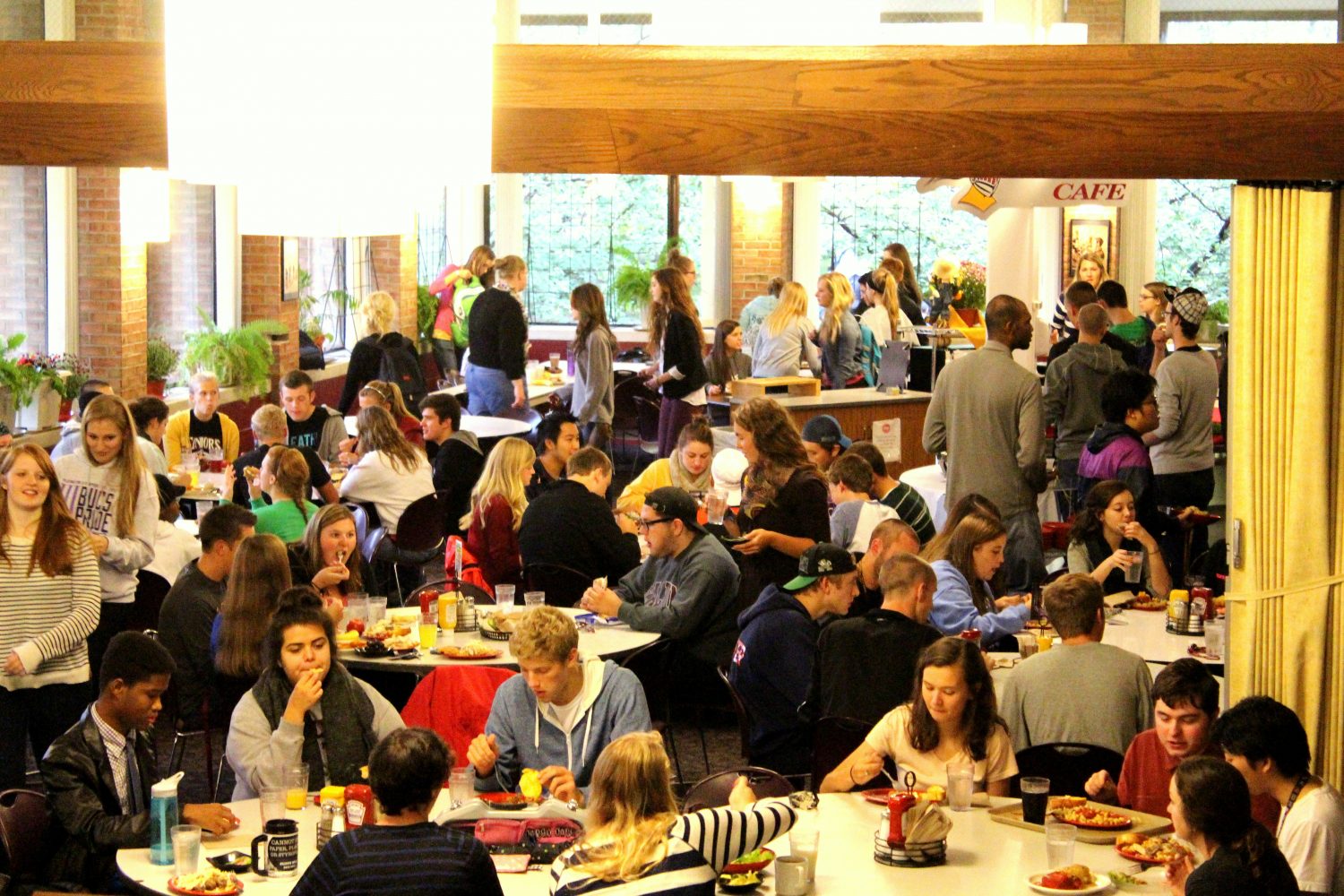At the beginning of this term, Calvin’s dining hall service made changes that affected more than half the student body: cutting hot breakfasts on weekends, reducing bonus bucks by $15 per meal plan and eliminating morning breakfast equivalency (B-quiv).
“We’ve tried keeping all the changes as seamless as possible,” said Richard Balfour, the director of dining services.
Balfour said the bonus bucks reduction was the cut that students noticed the most.
In reference to the bonus bucks cut, Balfour said, “It’s probably the only item that’s not seamless with you guys, but we’re trying to maintain our fiscal responsibility to the students.”
Students agreed that the drop in bonus bucks was noticeable.
“It’s necessary, but it’s unfortunate that it affects the students,” said Maria VanDyken.
“I would like it back since we pay the same price for a meal plan,” Hannah Pettinga said.
The other changes have mostly gone unnoticed by students, partly because the number of students who eat breakfast, especially on weekends, is so low, said Drew Esterline, lead student manager at Knollcrest Dining Hall.
“Feeding students can be a tricky business when trying to figure the numbers to provide for,” Esterline said.
But for many students, the changes have not gone unnoticed.
“It’s not worth $8 for a bowl of cereal and maybe toast,” said Lauren Mixon. “I don’t think it’s fair that we have to pay the same price while getting less.”
However, Balfour assures students they’ll still receive a good amount of food.
“We’re still providing a well-balanced meal on weekends,” Balfour said. “We serve hard boiled eggs, waffles, cereal, toast…etc.”
Senior Kirsten Gustafson has a 60-block meal plan and doesn’t find it worthwhile eating breakfasts if she could go somewhere else and get more for her money.
“There are fewer options in general and the portions have toned down,” Gustafson said. “But I understand that priorities change and by decreasing one thing, you can increase another.”
Even fewer students took advantage of the morning B-quiv, partly because not many students knew it was offered.
“Only a handful of people were affected by this change,” said Thia Oracz, the food service retail manager.
Yet, for students like Pettinga and Mixon, these changes are a loss.
“Every department is facing these cuts and food service is not omitted from these challenges,” Balfour said. “We’re just trying to continue a successful program and keep the changes as smooth as possible.”








